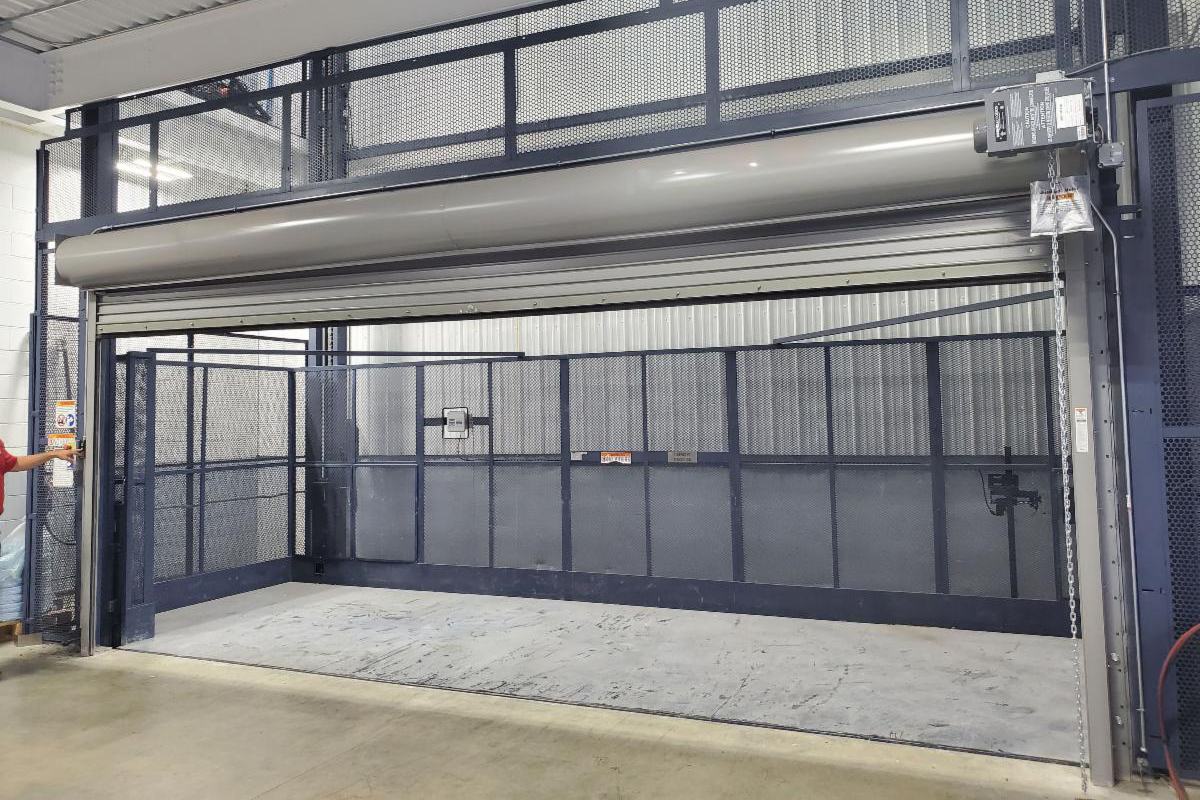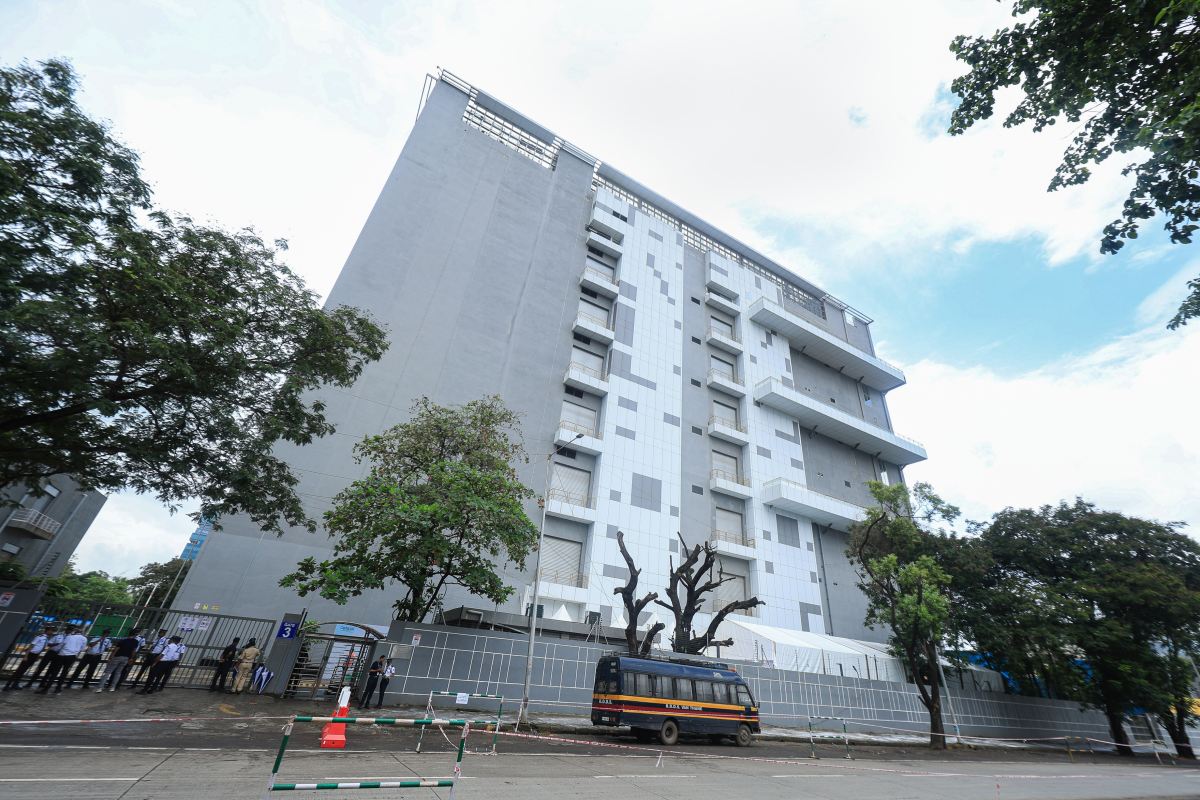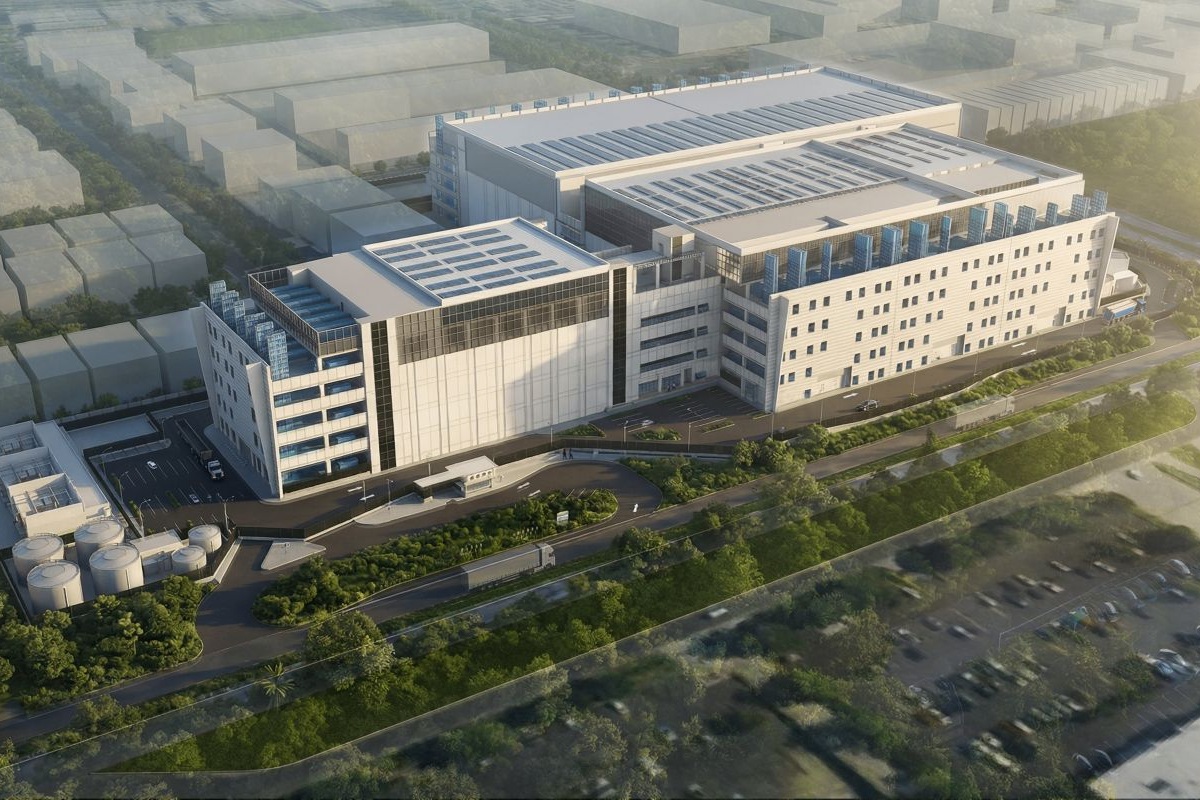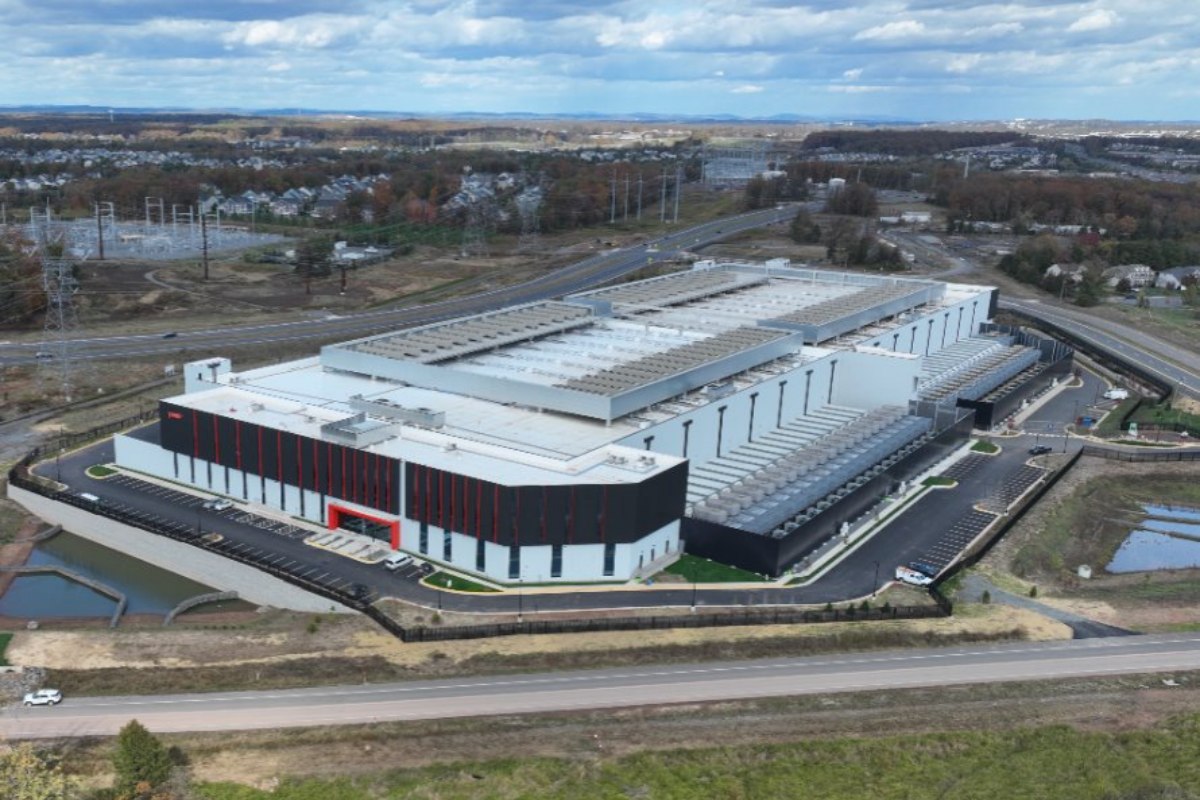Data Centre Build News & Insights
Data Centre Build News & Insights
Data Centre Operations: Optimising Infrastructure for Performance and Reliability
Data Centre Projects: Infrastructure Builds, Innovations & Updates
Edge Computing in Modern Data Centre Operations
Duos Edge AI deploys edge DC in Abilene, Texas
Duos Technologies Group, through its subsidiary Duos Edge AI, a provider of edge data centre (EDC) systems, has deployed a new edge data centre in Abilene, Texas, in partnership with Region 14 Education Service Center.
The facility forms part of the company’s ongoing rollout of carrier neutral edge data centres across Texas and is intended to support education, healthcare, workforce development, and local businesses.
Expanding regional edge infrastructure
Located at Region 14 ESC, the data centre will act as a local colocation site and computing hub for more than 40 school districts and charter schools spanning 11 counties. The company says the installation provides secure processing, increased bandwidth, and low-latency compute closer to users.
According to Duos Edge AI, the deployment is designed to reduce reliance on remote data centres and improve access to digital services, including AI-based applications and cloud platforms, particularly for schools in rural and underserved areas.
The Abilene installation follows earlier deployments in Amarillo, Waco, and Victoria, and is aligned with the company’s strategy to develop distributed edge capacity for education, healthcare, and enterprise use cases.
Doug Recker, President of Duos and founder of Duos Edge AI, comments, “We are excited to partner with Region 14 ESC to bring cutting-edge technology to Abilene and West Texas, bringing a carrier neutral colocation facility to the market while empowering educators and communities with the tools they need to thrive in a digital world.”
Region 14 ESC Executive Director Chris Wigington adds, “Collaborating with Duos Edge AI allows us to elevate the technological capabilities of our schools and partners, ensuring equitable access to high-speed computing and AI resources.”
The facility is scheduled to become operational in early 2026, with a launch event planned.
For more from Duos Edge AI, click here.
Joe Peck - 9 January 2026
Data Centre Build News & Insights
Data Centre Infrastructure News & Trends
Exploring Modern Data Centre Design
Innovations in Data Center Power and Cooling Solutions
Rethinking cooling, power, and design for AI
In this article for DCNN, Gordon Johnson, Senior CFD Manager at Subzero Engineering, shares his predictions for the data centre industry in 2026.
He explains that surging rack densities and GPU power demands are pushing traditional air-cooling beyond its limits, driving the industry towards hybrid cooling environments where airflow containment, liquid cooling, and intelligent controls operate as a single system.
These trends point to the rise of a fundamentally different kind of data centre - one that understands its own demands and actively responds to them.
Predictions for data centres in 2026
By 2026, the data centre will no longer function as a static host for digital infrastructure; instead, it will behave as a dynamic, adaptive system - one that evolves in real time alongside the workloads it supports. The driving force behind this shift is AI, which is pushing power, cooling, and physical design beyond previously accepted limits.
Rack densities that once seemed impossible - 80 to 120 kW - are now commonplace. As GPUs push past 700 W, the thermal cost of compute is redefining core engineering assumptions across the industry. Traditional air-cooling strategies alone can no longer keep pace. However, the answer isn’t simply replacing air with liquid; what’s emerging instead is a hybrid environment, where airflow containment, liquid cooling, and predictive controls operate together as a single, coordinated system.
As a result, the long-standing divide between “air-cooled” and “liquid-cooled” facilities is fading. Even in high-performing direct-to-chip (DTC) environments, significant residual heat must still be managed and removed by air. Preventing hot and cold air from mixing becomes critical - not just for stability, but for efficiency. In high-density and HPC environments, controlled airflow is now essential to reducing energy consumption and maintaining predictable performance.
By 2026, AI will also play a more active role in managing the thermodynamics of the data centre itself. Coolant distribution units (CDUs) are evolving beyond basic infrastructure into intelligent control points. By analysing workload fluctuations in real time, CDUs can adapt cooling delivery, protect sensitive IT equipment, and mitigate thermal events before they impact performance, making liquid cooling not only more reliable but secure and scalable.
This evolution is accelerating the divide between legacy data centres and a new generation of AI-focused facilities. Traditional data centres were built for consistent loads and flexible whitespace. AI infrastructure demands something different: modular design, fault-predictive monitoring, and engineering frameworks proven at hyperscale. To fully unlock AI’s potential, data centre design must evolve alongside it.
Immersion cooling sits at the far end of this transition. While DTC remains the preferred solution today and for the foreseeable future, immersion is increasingly viewed as the long-term endpoint for ultra-high-density computing. It addresses thermal challenges that DTC can only partially relieve, enabling facilities to remove much of their airflow infrastructure altogether. Adoption remains gradual due to cost, maintenance requirements, and operational disruption - to name a few - but the real question is no longer if immersion will arrive, but how prepared operators will be when it eventually does.
At the same time, the pace of AI growth is exposing the limitations of global supply chains. Slow manufacturing cycles and delayed engineering can no longer support the speed of deployment required. For example, Subzero Engineering’s new manufacturing and R&D facility in Vietnam (serving the APAC region) reflects a broader shift towards localised production and highly skilled regional workforces. By investing in R&D, application engineering, and precision manufacturing, Subzero Engineering is building the capacity needed to support global demand while developing local expertise that strengthens the industry as a whole.
Taken together, these trends point to the rise of a fundamentally different kind of data centre - one that understands its own demands and actively responds to them. Cooling, airflow, energy, and structure are no longer separate considerations, but parts of a synchronised ecosystem. By 2026, data centres will become active contributors to the computing lifecycle itself. Operators that plan for adaptability today will be best positioned to lead in the next phase of the digital economy.
For more from Subzero Engineering, click here.
Joe Peck - 8 January 2026
Commercial Real Estate: Property Developments, Trends & Infrastructure
Data Centre Build News & Insights
Data Centre Business News and Industry Trends
Data Centre Projects: Infrastructure Builds, Innovations & Updates
Nostrum, JLL partner for 800MW development in Spain
Nostrum Data Centers, a developer of sustainable data centre infrastructure across Spain and Europe, has engaged JLL, a global commercial real estate and investment management company, to advance its AI-ready platform in Spain.
Leveraging JLL’s global data centre experience, Nostrum says it is aiming to strengthen its customer engagement strategy and advance Spain’s emergence as a next-generation connectivity hub.
In December 2025, Nostrum announced its data centre assets will be available in 2027, with power and land secured across all sites. The company is developing 500 MW of sustainable IT capacity across Spain, with an additional 300 MW planned for expansion.
The company’s six data centre developments are strategically located throughout Spain to leverage existing connectivity and power infrastructure. Each facility is in alignment with the United Nations Sustainable Development Goals (SDGs), offering a PUE of 1.1 and a WUE of zero, eliminating water usage for cooling.
Sustainable development in Spain
Gabriel Nebreda, Chief Executive Officer at Nostrum Group, comments, “Nostrum Data Centers has a long-term vision for balancing innovation and sustainability.
"We offer our customers speed-to-market and scalability throughout our various locations in Spain, all while leading a green revolution to ensure development is done the right way as we position Spain as the next connectivity hub.
“We are confident that our engagement with JLL will be able to help us bolster our efforts and achieve our long-term vision.”
Jason Bell, JLL Senior Vice President of Data Center and Technology Services in North America, adds, “Spain has a unique market position with its access to robust power infrastructure; its proximity to Points of Presence (PoPs), internet exchanges, subsea connectivity; and being one of the lowest total cost of ownership (TCO) markets.
“JLL is excited to be working with Nostrum Data Centers, providing our expertise and guidance to support their quest to be a leading data centre platform in Spain, as well as position Spain as the next connectivity hub in Europe and beyond.”
For more from Nostrum Data Centers, click here.
Joe Peck - 7 January 2026
Data Centre Build News & Insights
Data Centre Business News and Industry Trends
Data Centre Projects: Infrastructure Builds, Innovations & Updates
Insights into Data Centre Investment & Market Growth
Global data centre build-out projected to require $3tn
The global data centre sector is poised for continued unprecedented expansion, with capacity expected to nearly double from 103 GW to 200 GW by 2030, according to real estate and investment management company JLL’s newly released 2026 Global Data Center Outlook report.
Artificial intelligence is rapidly reshaping the data centre landscape, and JLL anticipates AI workloads will represent half of all data centre capacity by 2030. Despite rapid growth, the fundamentals for the sector remain healthy and property metrics do not point to a bubble.
The explosive growth will require up to $3 trillion (£2.2 trillion) in total investment over the next five years, including $1.2 trillion (£887 billion) in real estate asset value creation and approximately $870 billion (£643 billion) in new debt financing, marking an infrastructure investment supercycle.
“We’re witnessing the most significant transformation in data centre infrastructure since the original cloud migration,” notes Matt Landek, Global Division President, Data Centers and Critical Environments at JLL. “The sheer scale of demand is extraordinary. Hyperscalers are allocating $1 trillion (£739 billion) for data centre spend between 2024 and 2026 alone, while supply constraints and four-year grid connection delays are creating a perfect storm that’s fundamentally reshaping how we approach development, energy sourcing, and market strategy.”
AI drives transformation
AI workloads could represent 50% of all data centre capacity by 2030, compared to approximately 25% in 2025. JLL anticipates a critical inflection point in 2027 when AI inference workloads will overtake training as the dominant requirement.
“We’re witnessing the emergence of an entirely new infrastructure paradigm where AI training facilities demand 10x the power density and command 60% lease rate premiums over traditional data centres,” explains Andrew Batson, Global Head of Data Center Research at JLL. “Beyond the economics, AI has become a matter of national strategic importance, driving countries to develop domestic capabilities through sovereign infrastructure investments that represent an $8 billion (£6 billion) CapEx opportunity by 2030.”
AI chips are projected to grow their total revenue share from 20% to 50% of the semiconductor market by 2030, with custom silicon expected to capture 15% market share as hyperscalers develop their own processors. The future could include emerging technologies like neuromorphic computing for ultra-efficient inference tasks that could reduce infrastructure demands and enable data centres to be more power-efficient.
Regional growth patterns
The Americas will maintain its position as the largest data centre region, representing about 50% of global capacity and achieving the fastest growth rate through 2030. The Asia-Pacific (APAC) region is projected to expand from 32 GW to 57 GW, while Europe, the Middle East, and Africa (EMEA) will add 13 GW of new supply.
Each region faces distinct market dynamics that will shape development strategies. In APAC, colocation is leading growth, while on-premise capacity is projected to decline 6% as enterprises continue cloud migration. EMEA’s growth forecast is fuelled by strong demand from hyperscalers, with growth concentrated in established European hubs like London, Frankfurt, and Paris, alongside emerging Middle Eastern markets pursuing digital transformation strategies. The US continues to drive most activity in the Americas, accounting for about 90% of regional capacity.
Market fundamentals remain strong
Property metrics do not indicate a bubble, as JLL’s analysis indicates the sector maintains healthy fundamentals with 97% global occupancy and 77% of the construction pipeline pre-committed to tenants.
Global lease rates are forecast to increase at a 5% CAGR through 2030, with the Americas leading at 7% annual growth due to severe supply constraints.
Despite developers preordering materials up to 24 months in advance, more than half of projects in 2025 experienced construction delays of three months or more. The average equipment lead time globally is now 33 weeks, a 50% increase from pre-2020 levels. The industry is responding through modular construction solutions, with annual sales of modular systems and micro data centres projected to reach $48 billion (£35 billion) by 2030.
“The increase in equipment lead times is affecting APAC just as it is globally, but strong pre-commitment levels demonstrate continued confidence in the market,” says Glen Duncan, JLL Data Center Research Director, Asia Pacific.
Energy and sustainability challenges
Energy sourcing remains a critical challenge, with average grid connection lead times exceeding four years in primary markets. Due to utility interconnection delays and mounting pressure from rising grid electricity costs, some operators are moving to directly fund their own energy generation, and several markets have implemented de facto 'bring your own power' mandates, including Dublin and Texas.
Data centres are also adopting diverse regional energy strategies to address grid constraints. Natural gas is projected to play a major role in alleviating grid constraints in the US, both for temporary bridge power and increasingly for permanent on-site power generation. The four primary hyperscalers are already fully matching their US data centre portfolios with renewable energy. In EMEA, projects combining renewables and private wire transmission can reduce the cost of power for tenants by 40% compared to the grid.
Battery energy storage systems (BESS) are gaining momentum, enabling cost-effective handling of short-duration outages and positioning the technology as a dynamic grid asset to speed up interconnection timelines. Additionally, solar-plus-storage will become a key component of global data centre energy strategies by 2030, with renewable energy costs projected to outcompete fossil fuels across all major regions.
“As regulatory and stakeholder expectations around renewable energy sourcing increase globally, data centre operators will face heightened scrutiny over their energy procurement,” suggests Martin Jensen, EMEA Division President, Data Centers at JLL. “While renewables like solar and wind remain the dominant focus of clean energy strategies, power sources such as nuclear are gaining attention for their ability to provide reliable electricity and help balance sustainability requirements with operational continuity; however, significant new nuclear capacity is unlikely to be widely deployed before the 2030s.”
Capital markets evolution
The sector is experiencing significant capital markets maturation, with core investment strategies now representing 24% of fundraising activity, up from less than 10% previously. More than $300 billion (£221 billion) in global M&A activity has occurred since 2020, though future investment is expected to shift towards recapitalisations and joint ventures as the market matures.
Global data centre core fund capital formation could top $50 billion (£37 billion) in 2026, with strategies targeting returns of 10% or more. ABS and CMBS securities are quickly becoming a solution for financing rapid sector expansion, with issuance volumes roughly doubling every year since 2020 and projected to reach $50 billion (£37 billion) in 2026.
For more from JLL, click here.
Joe Peck - 6 January 2026
Data Centre Architecture Insights & Best Practices
Data Centre Build News & Insights
Exploring Modern Data Centre Design
PFlow highlights VRC use in data centres
PFlow Industries, a US manufacturer of vertical reciprocating conveyor (VRC) technology, has highlighted the use of VRCs within data centre environments, focusing on its M Series and F Series systems.
VRCs are typically incorporated during the design phase of a facility to support vertical movement of equipment and materials.
PFlow states that, compared with conventional lifting approaches, VRCs can be integrated with automated material handling systems and used for intermittent or continuous operation, with routine maintenance requirements kept relatively low.
M Series and F Series applications
The PFlow M Series 2-Post Mechanical Material Lift is designed for higher-cycle environments where frequent vertical movement of equipment is required.
The company says the system can handle loads of up to 10,000lb (4,536kg) and operate across multiple floor levels. Standard travel speed is stated as 25 feet (7.62 metres) per minute, with higher speeds available depending on configuration.
The M Series is designed for use for transporting items such as servers, racks, and other technical equipment, with safety features intended to support controlled movement and equipment protection.
The PFlow F Series 4-Post Mechanical VRC is positioned for heavier loads and larger equipment. The standard lifting capacity is up to 50,000lb (22,680kg), with higher capacities available through customisation.
The design allows loading and unloading from all four sides and is intended to accommodate oversized infrastructure, including battery systems and large server assemblies.
PFlow says the F Series is engineered for high-cycle operation and flexible traffic patterns within facilities.
The company adds that its VRCs are designed as permanent infrastructure elements within buildings rather than standalone equipment. It states that all systems are engineered to meet ASME B20.1 conveyor requirements and are intended for continuous operation in environments where uptime is critical.
Dan Hext, National Sales Director at PFlow Industries, comments, “Every industry is under cost and compliance pressure. Our VRCs help facility operators achieve maximum throughput and efficiency while maintaining the highest levels of safety.”
Joe Peck - 5 January 2026
Data Centre Build News & Insights
Data Centre Operations: Optimising Infrastructure for Performance and Reliability
Data Centre Projects: Infrastructure Builds, Innovations & Updates
Edge Computing in Modern Data Centre Operations
Duos Edge AI expands US edge data centres
Duos Technologies Group, through its subsidiary Duos Edge AI, a provider of edge data centre (EDC) systems, has expanded its EDC footprint in Texas and entered the Illinois market, serving the Greater Chicago area.
The company reports continued deployments across several Texas locations and that the Illinois site represents its first installation in the Midwest.
Duos Edge AI says further sites are planned as part of a broader geographic expansion.
Texas and Midwest deployments
In Texas, Duos Edge AI has added two edge data centres in Lubbock to support carrier neutral requirements. The company has also deployed sites supporting education, healthcare, and service providers in Amarillo, Victoria, Waco, Dumas, and Corpus Christi.
The Illinois deployment is located in the Greater Chicagoland area and is described as the first of multiple planned installations in the Midwest.
According to the company, the Lubbock sites are intended to address service provider demand, while the broader Texas portfolio supports a range of public and private sector use cases.
Duos Edge AI’s modular edge data centres include security controls aligned with SOC 2 Type II certification under AICPA standards. The company also references its patented modular data centre entryway design, which is intended to protect equipment in controlled environments.
Commenting on the expansion, Doug Recker, President of Duos and founder of Duos Edge AI, says, “Expanding within Texas and into the Illinois market is a meaningful milestone that reflects both execution discipline and rising demand for our Edge Data Center.
"We are building a scalable, repeatable deployment model that supports education, carriers, and enterprises with secure, low-latency infrastructure.
"These expansions align with our growth strategy and reinforce our confidence in continued momentum as we execute against our long-term guidance.”
Duos Edge AI states that it plans to expand into additional US states, focusing on carrier neutral facilities that support localised compute and edge infrastructure requirements in a range of markets.
For more from Duos Edge AI, click here.
Joe Peck - 2 January 2026
Data Centre Build News & Insights
Data Centre Business News and Industry Trends
Data Centre Projects: Infrastructure Builds, Innovations & Updates
Insights into Data Centre Investment & Market Growth
CapitaLand India Trust divests data centre stakes
CapitaLand India Trust (CLINT), a Singapore-listed business trust investing in data centres, IT parks, industrial facilities, and logistics across India, has entered into definitive agreements to divest 20.2% stakes in three data centre assets under development to CapitaLand India Data Centre Fund (CIDCF).
The transaction has an estimated total purchase consideration of ₹7.02 billion (S$99.73 million; £57.8 million). The consideration is based on 20.2% of the combined enterprise value of the three assets, amounting to ₹51.97 billion (S$738.2 million; £428.3 million) as of 31 December 2025.
This valuation will be adjusted for liabilities, working capital, and capital expenditure, and remains subject to post-completion adjustments.
According to the Trust, the agreed enterprise value was negotiated on a willing-buyer and willing-seller basis and represents a premium to the independent valuation of ₹45.70 billion (S$649 million; £376.6 million) as at 31 December 2025.
Details of the data centre assets
The three data centres included in the transaction are located in Mumbai, Chennai, and Hyderabad.
In Navi Mumbai, CapitaLand DC Mumbai consists of two towers in Airoli. Tower one is completed with an IT power capacity of 34MW and a gross capacity of 50MW, while tower two remains under development with planned capacities of 37MW IT and 55MW gross.
CapitaLand DC Chennai, located in Ambattur, is under development and is expected to provide 34MW of IT capacity and 53MW of gross capacity.
CapitaLand DC Hyderabad, situated in Madhapur, is also under development, with planned capacities of 27MW IT and 42MW gross.
In September 2025, CLINT divested CyberVale in Chennai and CyberPearl in Hyderabad, marking the Trust’s first divestment since its listing in 2007. The partial divestment of its data centre portfolio follows this earlier transaction and forms part of what CLINT describes as its broader approach to managing and realising the value of its development assets.
Commenting on the transaction, Gauri Shankar Nagabhushanam, Chief Executive Officer of CapitaLand India Trust Management, the trustee-manager of CLINT, says, “The partial divestment reflects continued execution of our portfolio reconstitution strategy.
"By unlocking value earlier in the development cycle while retaining a significant stake in the assets, we are able to support our development pipeline and enhance financial flexibility.
“We are pleased to be partnering with CIDCF and remain invested in the future growth of India’s data centre sector through our remaining stake in the portfolio.
"The partnership with CIDCF also provides CLINT the right to participate in a partial stake in future data centre developments by our sponsor and potentially buy back the assets or explore exit options such as an initial public offering of the assets.
"Post-transaction, CLINT remains well-positioned to pursue accretive and higher yielding investment growth opportunities in key Indian cities to create value for our Unitholders.”
Joe Peck - 2 January 2026
Data Centre Architecture Insights & Best Practices
Data Centre Build News & Insights
Exclusive
Exploring Modern Data Centre Design
Sustainable Infrastructure: Building Resilient, Low-Carbon Projects
The blueprint for tomorrow’s sustainable data centres
In this exclusive article for DCNN, Francesco Fontana, Enterprise Marketing and Alliances Director at Aruba, explores how operators can embed sustainability, flexibility, and high-density engineering into data centre design to meet the accelerating demands of AI:
Sustainable design is now central to AI-scale data centres
The explosive growth of AI is straining data centre capacity, prompting operators to both upgrade existing sites and plan large-scale new-builds. Europe’s AI market, projected to grow at a 36.4% CAGR through 2033, is driving this wave of investment as operators scramble to match demand.
Operators face mounting pressure to address the environmental costs of rapid growth, as expansion alone cannot meet the challenge. The path forward lies in designing facilities that are sustainable by default, while balancing resilience, efficiency, and adaptability to ensure data centres can support the accelerating demands of AI.
The cost of progress
Customer expectations for data centres have shifted dramatically in recent years. The rapid uptake of AI and cloud technologies is fuelling demand for colocation environments that are scalable, flexible, and capable of supporting constantly evolving workloads and managing surging volumes of data.
But this evolution comes at a cost. AI and other compute-intensive applications demand vast amounts of processing power, which in turn place new strains on both energy and water resources. Global data centre electricity usage is projected to reach 1,050 terawatt-hours (TWh) by 2026, placing data centres among the world’s top five national consumers.
This rising consumption has put data centres firmly under the spotlight. Regulators, customers, and the wider public are scrutinising how facilities are designed and operated, making it clear that sustainability can no longer be treated as optional. To survive amongst these new expectations, operators must balance performance with environmental responsibility, rethinking infrastructure from the ground up.
Steps to a next-generation sustainable data centre
1. Embed sustainability from day one
Facilities designed 'green by default' are better placed to meet both operational and environmental goals, and this why sustainability can’t be an afterthought. This requires renewable energy integration from the outset through on-site solar, hydroelectric systems, or long-term clean power purchase agreements.
Operators across Europe are also committing to industry frameworks like the Climate Neutral Data Centre Pact and the European Green Digital Coalition, ensuring progress is independently verified. Embedding sustainability into the design and operation of data centres not only reduces carbon intensity but also creates long-term efficiency gains that help manage AI’s heavy energy demands.
2. Build for flexibility and scale
Modern businesses need infrastructures that can grow with them. For operators, this means creating resilient IT environments with space and power capacity to support future demand. Offering adaptable options - such as private cages and cross-connects - gives customers the freedom to scale resources up or down, as well as tailor facilities to their unique needs.
This flexibility underpins cloud expansion, digital transformation initiatives, and the integration of new applications - all while helping customers remain agile in a competitive market.
3. Engineering for the AI Workload
AI and high-performance computing (HPC) workloads demand far more power and cooling capacity than traditional IT environments, and conventional designs are struggling to keep up.
Facilities must be engineered specifically for high-density deployments. Advanced cooling technologies, such as liquid cooling, allow operators to safely and sustainably support power densities far above 20 kW per rack, essential for next-generation GPUs and other AI-driven infrastructure.
Rethinking power distribution, airflow management, and rack layout ensures high-density computing can be delivered efficiently without compromising stability or sustainability.
4. Location matters
Where a data centre is built plays a major role in its sustainability profile, as regional providers often offer greater flexibility and more personalised services to meet customer needs.
Italy, for example, has become a key destination for new facilities. Its cloud computing market is estimated at €10.8 billion (£9.4 billion) in 2025 and is forecast to more than double to €27.4 billion (£23.9 billion) by 2030, growing at a CAGR of 20.6%. Significant investments from hyperscalers in recent years are accelerating growth, making the region a hotspot for operators looking to expand in Europe.
5. Stay compliant with regulations and certifications
Strong regulatory and environmental compliance is fundamental. Frameworks such as the General Data Protection Regulation (GDPR) safeguard data, while certifications like LEED (Leadership in Energy and Environmental Design) demonstrate energy efficiency and environmental accountability.
Adhering to these standards ensures legal compliance, but it also improves operational transparency and strengthens credibility with customers.
Sustainability and performance as partners
The data centres of tomorrow must scale sustainably to meet the demands of AI, cloud, and digital transformation. This requires embedding efficiency and adaptability into every stage of design and operation.
Investment in renewable energy, such as hydro and solar, will be crucial to reducing emissions. Equally, innovations like liquid cooling will help manage the thermal loads of compute-heavy AI environments. Emerging technologies - including agentic AI systems that autonomously optimise energy use and breakthroughs in quantum computing - promise to take efficiency even further.
In short, sustainability and performance are no longer competing objectives; together, they form the foundation of a resilient digital future where AI can thrive without compromising the planet.
For more from Aruba, click here.
Joe Peck - 2 January 2026
Data Centre Build News & Insights
Data Centre Projects: Infrastructure Builds, Innovations & Updates
News
AirTrunk opens hyperscale data centre campus in Melbourne
AirTrunk, a hyperscale data centre specialist in the Asia Pacific & Middle East region, has announced the acquisition of a new site in Melbourne’s North West for its second Melbourne campus, to be known as MEL2.
With over 354MW capacity, MEL2 will add more than AUD $5 billion (£2.48bn) in new direct investment and lift AirTrunk’s total deployable capacity in Melbourne to over 630 MW. Across MEL1 and MEL2, AirTrunk’s investment in the city’s digital infrastructure will exceed AUD $7 billion (£3.45bn), delivering one of the largest economic and productivity boosts to Victoria.
MEL2 is expected to create over 4,000 jobs during the multi-phase construction and over 200 direct jobs, once operational. In addition, AirTrunk will boost the local supply chain creating in excess of 1,000 full-time jobs to support its data centres.
The new site will complement AirTrunk’s existing Australian campuses, giving global AI and cloud customers greater geographical diversity across the Sydney and Melbourne markets. AirTrunk will operate five campuses nationally - SYD1 (121 MW+), SYD2 (158 MW+), SYD3 (330 MW+), MEL1 (276 MW+), and MEL2 (354 MW+) - delivering a combined capacity of more than 1.2 GW.
Robin Khuda, Founder & CEO of AirTrunk, says, “Australia has set bold ambitions to become a global AI hub, and demand for AI ready infrastructure continues to grow. MEL2 is part of our response. Working closely with Invest Victoria, we’re expanding in Melbourne to support Australia’s AI future while creating new opportunities for local business and communities.
“AI data centres require significant upfront investment, and AirTrunk’s strong balance sheet and proven regional track record helps give global AI customers confidence in reliable, on time deployment in Australia.”
Victorian Premier, the Hon. Jacinta Allan, adds, “Victoria is leading Australia’s digital transformation, and investments like this will strengthen our state’s position as a hub for cloud and AI innovation, create thousands of jobs, and deliver sustainable infrastructure that supports our growing technology ecosystem."
AirTrunk’s expansion in Melbourne follows last week’s announcement of a new hyperscale campus in Osaka, Japan, delivering up to 100MW of IT load in Japan and a AUD $3 billion-plus (£1.48bn) new direct investment in Japan.
OSK2 and MEL2 - which will become AirTrunk’s fourteenth and fifteenth data centres respectively - expand the company’s hyperscale platform to deliver a total capacity in excess of 2.6 GW across six markets in Asia Pacific and Middle East: Australia, Singapore, Japan, Malaysia, Hong Kong and Saudi Arabia.
AirTrunk’s Melbourne expansion comes as Australia advances its National AI Plan, released in late 2025, which outlines the country’s ambition to become a global hub for artificial intelligence. The plan is built around three pillars: capturing the opportunity through investment in infrastructure and skills, spreading the benefits across industries and communities, and keeping Australians safe through responsible AI governance.
By delivering a new hyperscale data centre in Melbourne, AirTrunk says that it is directly supporting these national goals, enabling smarter government services, faster business innovation, and stronger human connection, while creating opportunities for local talent and suppliers.
For more from AirTrunk, click here.
Simon Rowley - 24 December 2025
Data Centre Build News & Insights
Data Centre Projects: Infrastructure Builds, Innovations & Updates
News
Yondr completes RFS milestone at Northern Virginia campus
Yondr Group, a global developer, owner, and operator of hyperscale data centres, has completed the first ready-for-service (RFS) milestone for the second building at its 96MW hyperscale data centre campus in Loudoun County, Northern Virginia, USA.
The milestone marks the delivery of the first 12MW of capacity within a 48MW facility, which forms part of Yondr’s wider Northern Virginia development. The second building is scheduled to become fully operational in 2026.
Developed in partnership with JK Land Holdings, the project supports Yondr’s strategy to deliver additional cloud and digital infrastructure capacity as global data demand continues to rise, driven in part by the growing adoption of artificial intelligence workloads.
Yondr completed the first 48MW data centre at the Northern Virginia campus in 2024. The company also has a further 240MW of capacity planned on an adjacent parcel of land, which would bring the total campus capacity to 336MW.
Northern Virginia remains one of the world’s most established data centre markets, accounting for close to 60% of the primary data centre inventory in the United States and hosting more than 30 million square feet of operational data centre space.
Continued expansion across North America
Yondr says the Loudoun County development reflects its broader growth strategy across North America.
In addition to Northern Virginia, the company currently has a 27MW project under development in Toronto and has secured a 163-acre site in Lancaster, south of Dallas, where it plans to develop a 550MW hyperscale campus.
Todd Sauer, VP Design & Construction Americas at Yondr Group, says, “This RFS milestone is the latest in a series of achievements across our North American data centre portfolio and continues the strong progress we’re making in the important Northern Virginia market.”
John Madden, Chief Data Centre Officer at Yondr Group, adds, “As demand for capacity continues to increase, we are stepping up our investment in North America, a high-growth, dynamic market full of opportunities.
"We look forward to expanding in the region and continuing to deliver scalable, reliable infrastructure that meets our customers’ evolving requirements.”
For more from Yondr Group, click here.
Joe Peck - 22 December 2025

Head office & Accounts:
Suite 14, 6-8 Revenge Road, Lordswood
Kent ME5 8UD
T: +44 (0)1634 673163
F: +44 (0)1634 673173









